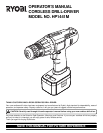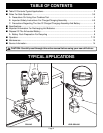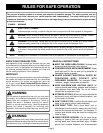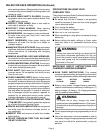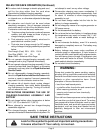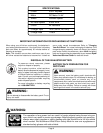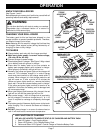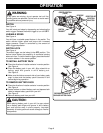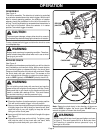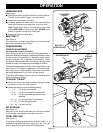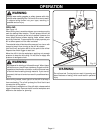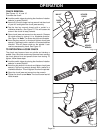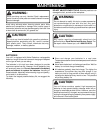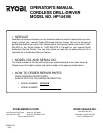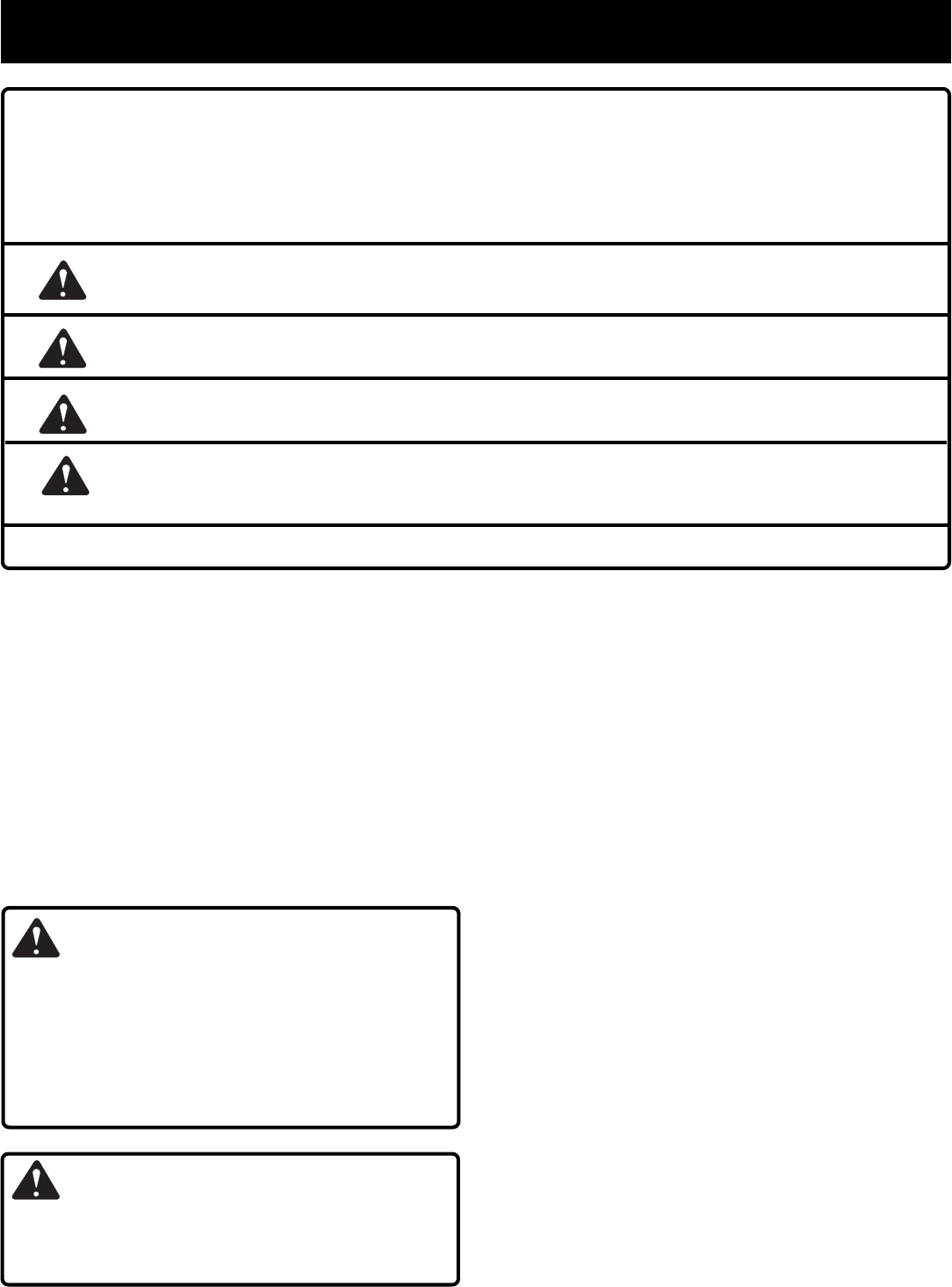
Page 3
RULES FOR SAFE OPERATION
The purpose of safety symbols is to attract your attention to possible dangers. The safety symbols, and the
explanations with them, deserve your careful attention and understanding. The safety warnings do not by
themselves eliminate any danger. The instructions or warnings they give are not substitutes for proper accident
prevention measures.
SYMBOL MEANING
SAFETY ALERT SYMBOL:
Indicates danger, warning, or caution. May be used in conjunction with other symbols or pictographs.
DANGER: Failure to obey a safety warning will result in serious injury to yourself or to others. Always
follow the safety precautions to reduce the risk of fire, electric shock, and personal injury.
WARNING: Failure to obey a safety warning can result in serious injury to yourself or to others. Always
follow the safety precautions to reduce the risk of fire, electric shock and personal injury.
CAUTION: Failure to obey a safety warning may result in property damage or personal injury to yourself
or to others. Always follow the safety precautions to reduce the risk of fire, electric shock and personal
injury.
NOTE: Advises you of information or instructions vital to the operation or maintenance of the equipment.
READ ALL INSTRUCTIONS
■ KEEP THE WORK AREA CLEAN. Cluttered work
areas and work benches invite injuries.
■ CONSIDER WORK AREA ENVIRONMENT. Keep
work area well lit. Do not use tool in presence of
flammable liquids or gases.
■ GUARD AGAINST ELECTRICAL SHOCK BY
PREVENTING BODY CONTACT WITH
GROUNDED SURFACES. For example: Pipes,
radiators, ranges, refrigerator enclosures.
■ KEEP CHILDREN AND VISITORS AWAY. All
visitors should wear safety glasses and be kept a
safe distance from work area. Do not let visitors
contact tool or extension cord.
■ STORE IDLE TOOLS. When not in use tools should
be stored in a dry and high or locked-up place - out
of the reach of children.
■ DON'T FORCE TOOL. It will do the job better and
safer at the rate for which it was designed.
■ USE RIGHT TOOL. Don't force small tool or
attachment to do the job of a heavy duty tool. Don't
use tool for purpose not intended - for example - A
circular saw should never be used for cutting tree
limbs or logs.
■ WEAR PROPER APPAREL. Do not wear loose
clothing or jewelry that can get caught in tool's
moving parts and cause personal injury. Rubber
gloves and nonskid footwear are recommended
KNOW YOUR CORDLESS TOOL
Safe operation of this cordless tool requires that you read
and understand this Operator's Manual and all labels affixed
to the tool. Learn its applications and limitations as well as
the potential hazards related to a cordless tool. Keep this
manual readily available for future reference.
IMPORTANT
Servicing of a tool requires extreme care and knowledge of
the system and should be performed only by a authorized
service technician. For service we suggest you return the
tool to your nearest Ryobi Authorized Service Center for
repair. When servicing, use only identical Ryobi replacement
parts.
WARNING:
Do not attempt to operate this tool until you have read
thoroughly and understand completely all instructions,
safety rules, etc. contained in this manual. Failure to
comply can result in accidents involving fire, electric
shock, or serious personal injury. Save this operator's
manual and review it frequently for continuing safe
operation, and instructing others who may use this tool.
WARNING:
When using power tools, basic safety precautions should
always be followed to reduce the risk of fire, electric shock,
and personal injury, including the following precautions.



